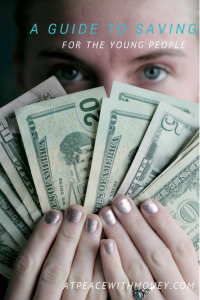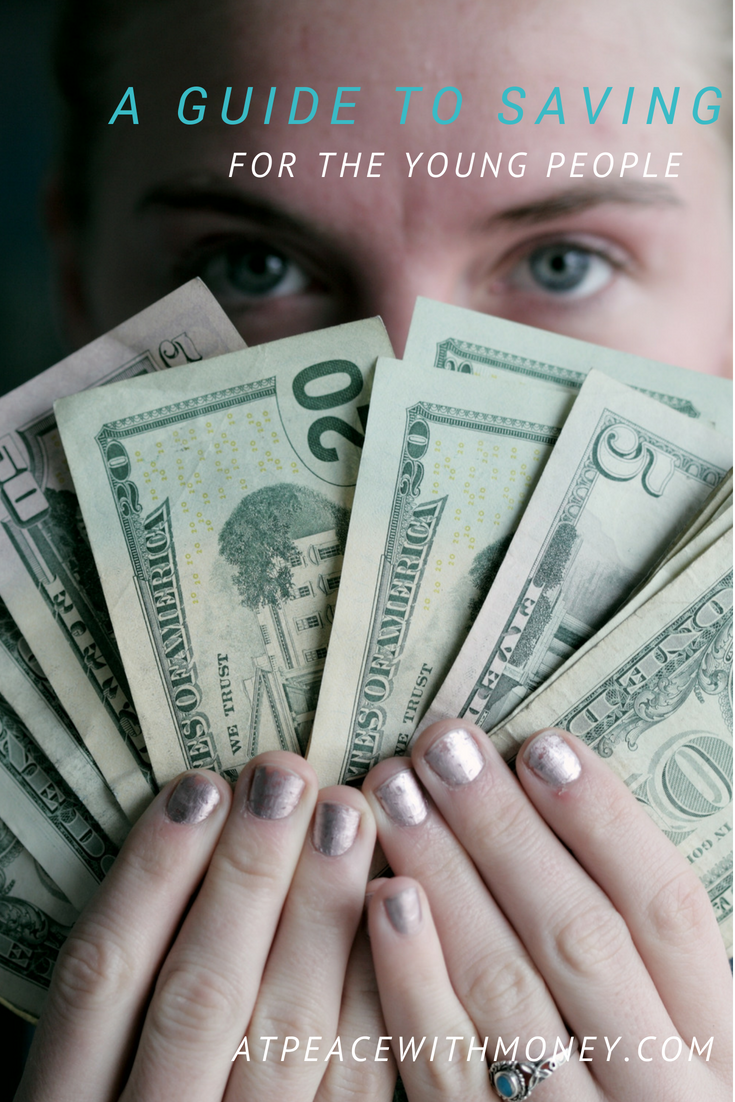Young and Thrifty: A Guide to Saving
 Recently I’ve received some questions about financial advice for young people. I think the most important piece of advice I can give is this: save your money. It’s simple, but it can be difficult to get in the saving habit. That’s why I recommend developing a savings plan. There are three parts to a good savings plan: percentage, motivation, and banking.
Recently I’ve received some questions about financial advice for young people. I think the most important piece of advice I can give is this: save your money. It’s simple, but it can be difficult to get in the saving habit. That’s why I recommend developing a savings plan. There are three parts to a good savings plan: percentage, motivation, and banking.
Savings Percentage
In order to save money, it’s important to decide what portion of your money you want to regularly save. You can decide this in a variety of ways. If you’re in a situation where you don’t need most of your income for fixed expenses, the amount you can save becomes much more flexible. For example, when my younger daughter started working at our local pizza place, she decided she would save her paycheck and spend her tips.
Many sources recommend saving about 10% of your income monthly. If you have a fixed income, this can be calculated easily. With variable income, you can simply tally up what you’ve made and calculate the percentage each month. Use the other 90% of your income to live off of and cover your expenses.
If you want to make things more organized or complex, you can work on budgeting out your expenses. I’ll talk about different budgeting strategies in a later post.
Motivation
Having financial goals is important! Make sure you know what you’re saving for. Are you looking to purchase a car? Moving out? A fund that will enable you to leave your job in case of sexual harassment or unfair treatment? Having an intention for your savings is important because it helps keep you motivated. The more specific it is, the easier it is to focus on. For example, when my older daughter decided she wanted to take a 3 month road trip, she calculated how much she needed to save, got a job at a shoe store, and the next few months saving almost all of her income. She even lived on her friend’s couch for two months to save on rent. In the end, she saved all the money she needed and then some. That’s the power of motivation!
Banking
Use a bank that earns you high interest on your savings and doesn’t charge fees. Doing some research to find a good bank will help you figure out where to put your money and watch it grow quickly. You can also read my tips for avoiding bank fees here.
Some banks allow you to automatically transfer money to a savings account each month. Setting up that automation can make saving even easier. When you don’t even have to think about it, it’s much more likely to get done.
 Saving is the best piece of financial advice I can give to young people. Getting in the habit of saving your money opens up a lot of choices, something that’s important and helpful in any young person’s life!
Saving is the best piece of financial advice I can give to young people. Getting in the habit of saving your money opens up a lot of choices, something that’s important and helpful in any young person’s life!
This post was written in response to some requests I’ve received for financial advice for young people. To answer these questions, I’ve created a series called Young and Thrifty. Check the tag Young and Thrifty to see other articles in the series.
☮
Angela
Image Sources: Jeremy Cai, Sharon McCutcheon






 Finally, another resource that might help is
Finally, another resource that might help is 

 For example, one of the credit unions in my area partners with an organization that provides financial support and bilingual assistance to startups and small businesses run by low-income and minority entrepreneurs. If you’re looking to align your money with your values, your local credit union is a good place to start. If this interests you, you might enjoy this
For example, one of the credit unions in my area partners with an organization that provides financial support and bilingual assistance to startups and small businesses run by low-income and minority entrepreneurs. If you’re looking to align your money with your values, your local credit union is a good place to start. If this interests you, you might enjoy this